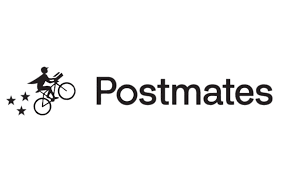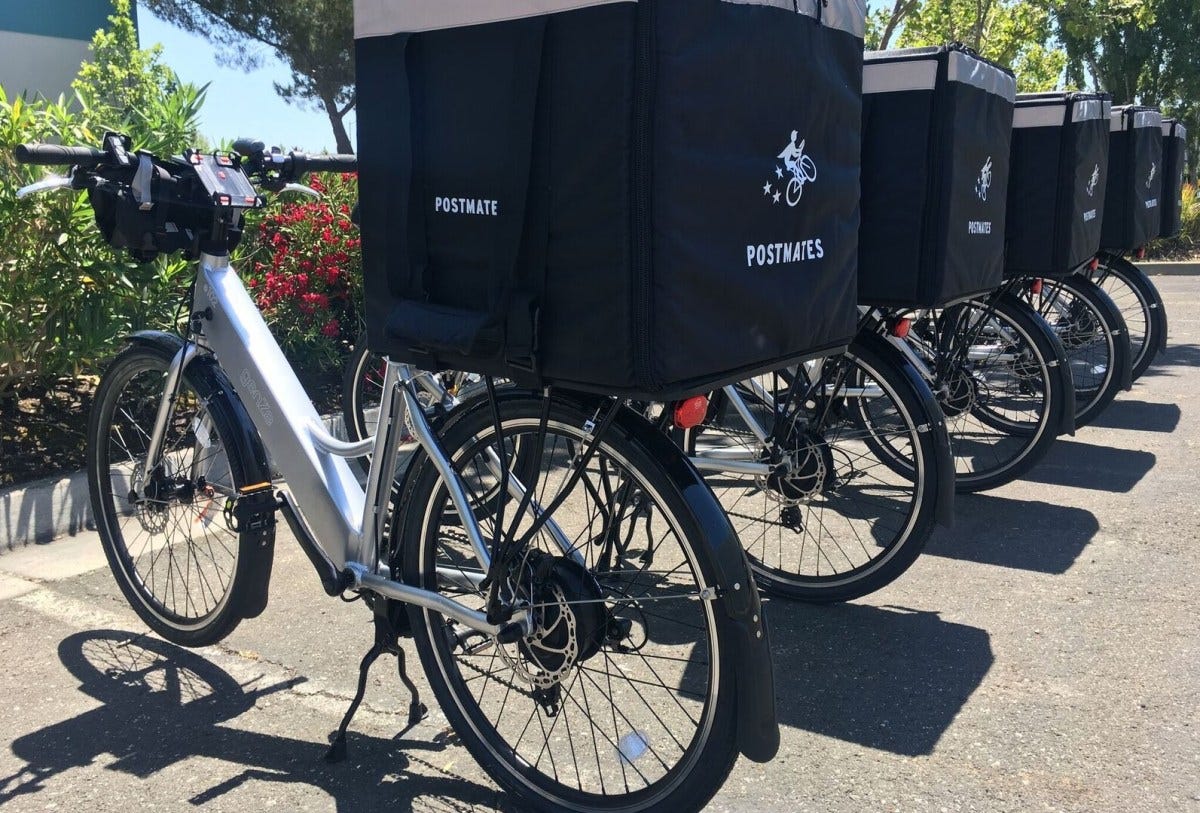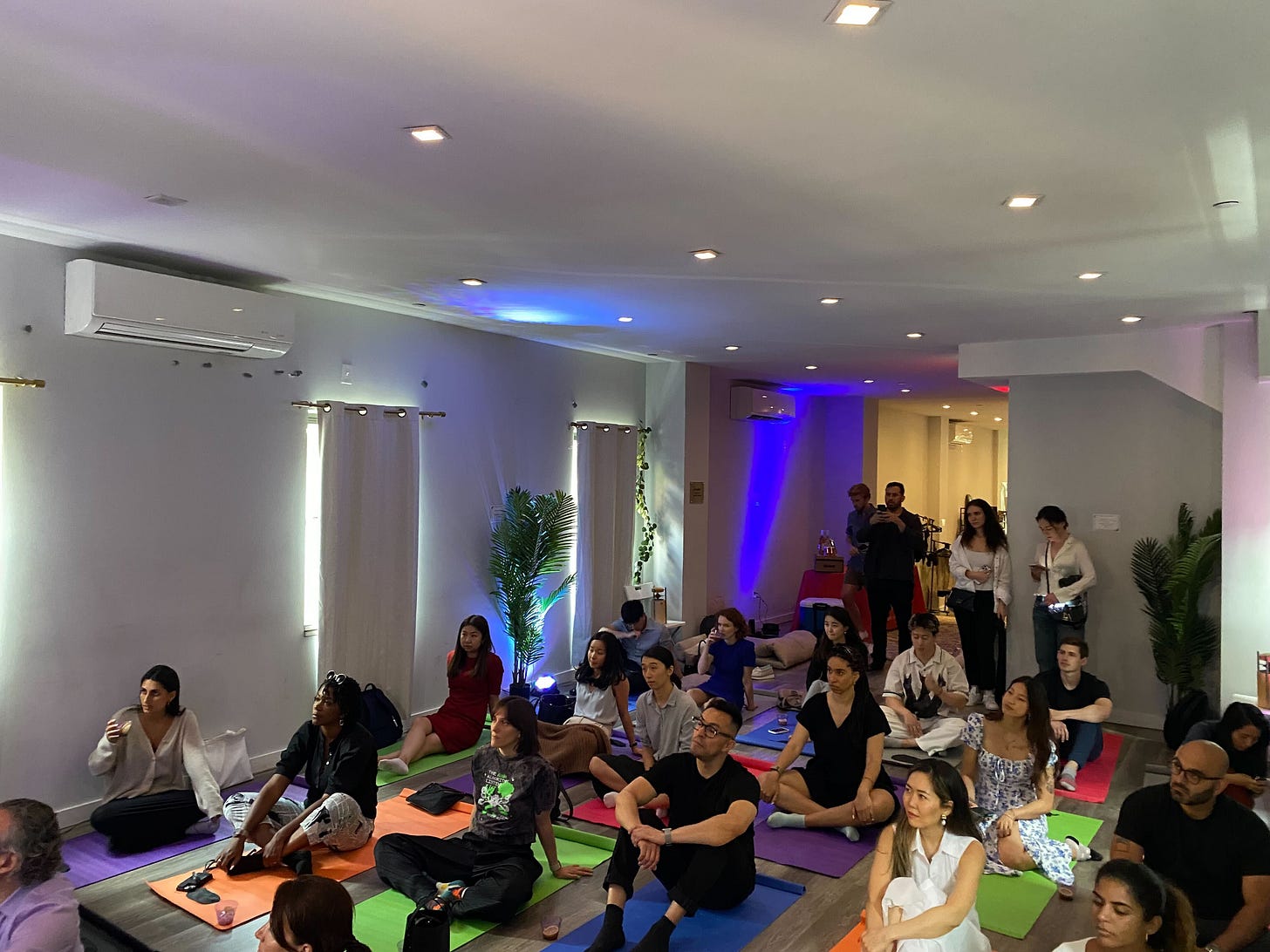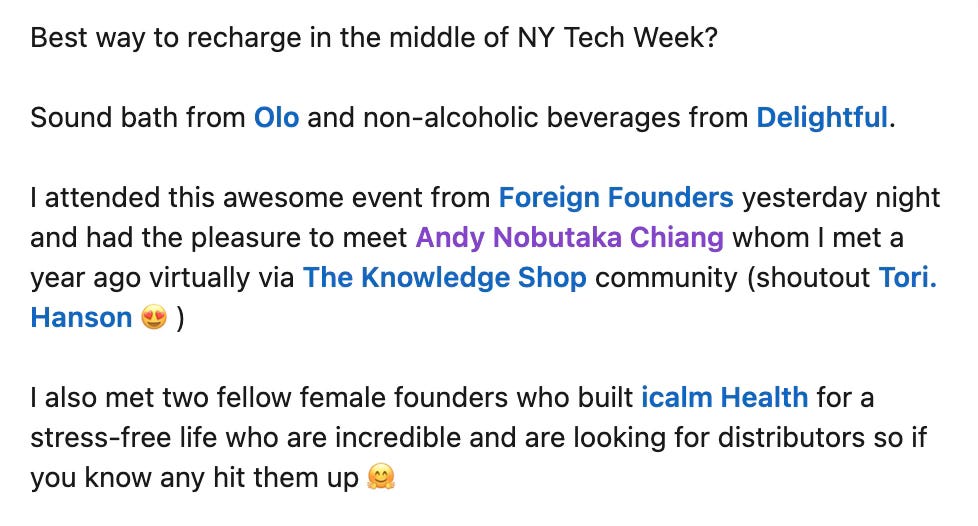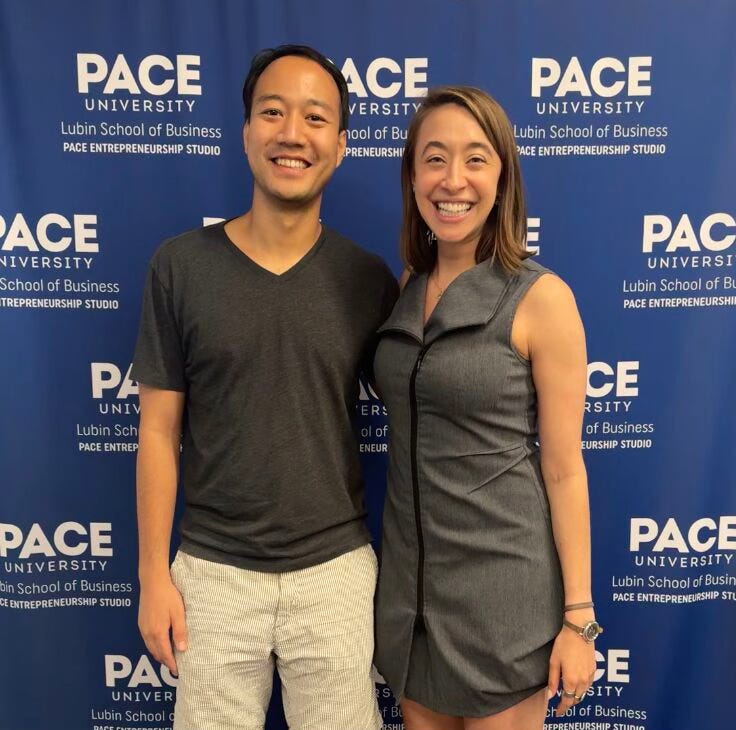We were in the thick of the “delivery wars” not long ago, with DoorDash, UberEats, GrubHub and Postmates duking it out for market share. I experienced it first hand living in San Francisco in what seemed like the peak of on-demand. I heard stories from friends who were leading supply and demand marketplaces and driving acquisition for a variety of on-demand apps. It all came back when I watched the Everything Marketplaces (amazing content) interview with Bastian Lehmann, I knew I had to write about the German-born immigrant founder and his company, Postmates.
Bastian’s Early Days
Born in Munich, Bastian wanted to be a movie director for as long as he remembers. In an interview, he joked that maybe he wanted to be a director because he wanted to “tell people what to do” and took inspiration from Stanley Kubrick for his imagination. He studied industrial design in Munich, but dropped out in 1999 and founded his first startup, Seven a Day, with his friends.
Seven a Day was ahead of its time. An e-commerce site with only 7 discounted products a day - it mixed the novelty of curation, cultivated the FOMO of limited availability, and the savings of group buying. It was with Seven a Day that Bastian had his first experiences raising capital from venture capitalists. Reflecting on the experience, Bastian said “I tried to raise money in Germany for the first time in 1999 [for Seven a Day]” but it was a challenge because “me and my friends dropped out of college which was unheard of in Germany at that time.”
Despite their efforts, they exhausted all their capital and had to shut down the company. “The whole thing ate up my savings and not much more” recalled Bastian.
Silicon Valley Beckons
After closing down Seven a Day, Bastian moved from Munich to London - that’s when the idea of Postmates was first conceived. He left his snowboard in Munich and needed a quick solution to ship is to his parent’s home in Berlin. None of the available solutions were easy, quick nor cheap. Bastian asked “why couldn’t there be an better way for someone to ship an item from one place to another?”. Though we wouldn’t see Postmates for another five years, Bastian would meet his co-founder, Sam, in London and start his next company, curated.by.
They knew curated.by, which was a curation tool for bundling and sharing tweets, “was a completely stupid idea”, and not something that the team wanted to spend the rest of their lives on. Their mentor, Thomas Korte, founder and GP of AngelPad, agreed with their analysis, but said that if they built curated.by in Silicon Valley, he would open up his network to them. There was no second guessing for Bastian, it gave him the opportunity to fulfill his second dream - to build a company in Silicon Valley.
“The original use case [for Postmates] was to solve for when people lost their keys.”
Beginning of Postmates
Once in Silicon Valley, the doors began to open - not for investments into curated.by but towards the founding team. Naval Ravikant, legendary Silicon Valley founder and investor, was one of them. Six months after their failed pitch to Naval; Bastian, Sean and Sam started working on Postmates. “The initial idea for Postmates were to create a local postal service to move things within the city. The original use case was to solve for when people lost their keys.” Years ago, Bastian, needed to ship his snowboard from Munich to Berlin - Postmates was what came out on the other side after more than 5 years.
With the prototype in hand, the team went back to Naval. This time it was different. Naval’s response wasn’t “this isn’t it”, but wrote them a check of $250k in that meeting. They had raised money from investors. With a fresh round of capital, they set out to answer the big question. What would Postmates deliver? Bastian recalled “[the] First version of Postmates was a beautiful product, it looked like a notepad and was the designed for local merchants. We talked to hundreds of merchants in San Francisco, and they determined the biggest pain point for them was getting the item delivered to the customer. Someone would come into the store, find a product they want to buy, and realize the merchant couldn’t deliver them. We signed up every single furniture store in SF.”
Many merchants were excited to use the app, but their usage didn’t reflect their excitement. Instead, usage ticked up for an unintended use case. Customers were picking a shop in the app, and placing in their shopping list within the description. This hack broke the app. “We had to cancel these orders because we didn’t have any payment system within the app.” recalled Bastian.
#GetItNow Campaign
Postmates were solving a problem for the wrong audience. In an interview Bastian said of this moment, ”we were annoyed by it because we wanted to be an infrastructure company [for merchants to deliver locally], but was advised to give it [serving customers] a try”.
They devised a plan to test a customer use case for over a weekend. One big problem. Back in the early 2010s, payment infrastructure like Stripe was just coming online and weren’t widely available. So, they relied on gift cards. $10k worth of pre-paid gift cards in $100 denominations. This caused red flags all over San Francisco. Cops were called twice onto the scene at Safeway and their bank blocked the transactions.
Little did they know, this weekend test called #GetItNow, set the path for Postmates’ future as a company.“ The wheels came off, people wanted Postmates. Every second order was wrong but there was consumer demand. We couldn’t believe it!” said Bastian. By Sunday evening, Postmates have bought and delivered over $10k worth of goods from stores around the city.
This was such an energizing piece to write. Not only because of my background working with marketplace products and companies (I love them!), but the Postmates and the delivery story was so profound in my early professional career. It was fantastic to finally learn more about the immigrant founder who built the company. There’s obviously more to Postmates than what was written above, including the road leading up to Uber’s acquisition of Postmates in 2020 for $2.65 billion. There’s so many great content online for those stories from the founders and operators of Postmates, and I found them really entertaining to read and watch.
Which immigrant founder story do you want me to do a deep-dive on next?
Podcast
If you haven’t listen to Foreign Founders Season 4 yet, you should! I’ll write down one (of many!) reason you should listen to the episode.
Sydney Wong, VenturX Capital (Spotify | Apple) → Exited founder, now early stage investor. Incredible stories about how she built her company as a non-technical, solo founder. 🚩 red flags if you’re raising money from institutional investors.
Martin Lien, Volt (Spotify | Apple) → Talented entrepreneur building a successful business in Tulsa, Oklahoma. They were a weekend away from shutting down the company.
Yasaman Soroori, Consulta Immigration (Spotify | Apple) → How they attracted customers through viral videos talking about real family immigration problems.
Gregory Ugwi, WeFranch (Spotify | Apple) → He saw from an early age how difficult it was for his community in the slums of Lagos to make a living, so he’s dedicating his life to help people build a living working with high quality franchises.
Community
So much has happened in the last few weeks! Want to be a part of future events? Follow us on Luma
Foreign Founders co-hosted a series of NY Tech Week events with our community. Foreign Founders partnered with Delightful, iCalm and Olo to create a special calmness and wellness event for attendees.
We hosted a “How to build your company and culture”, HR event with our friends from PeopleFunction’s CEO Emma Leeds. Her people-first insights into the culture was helpful and insightful for founders.




